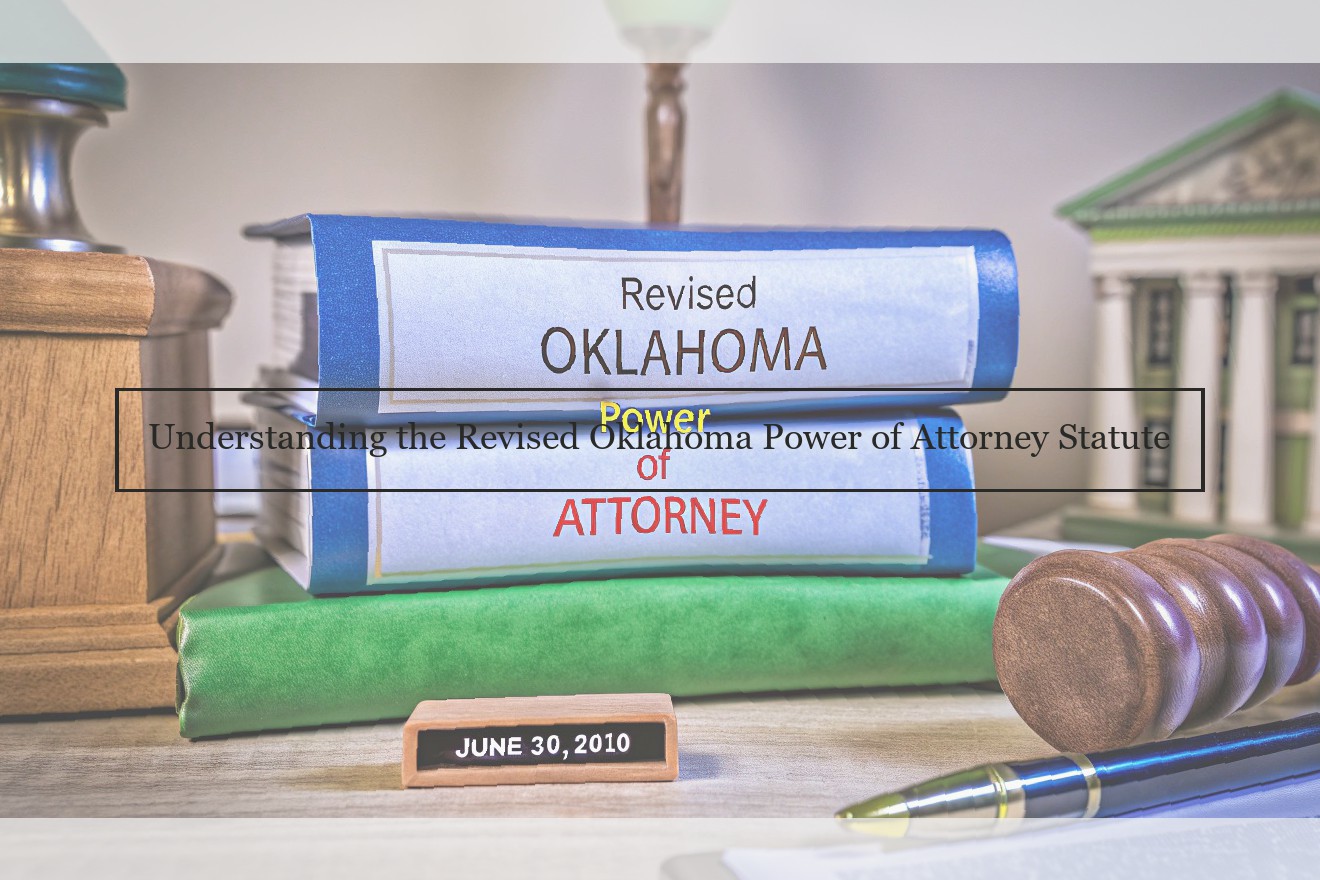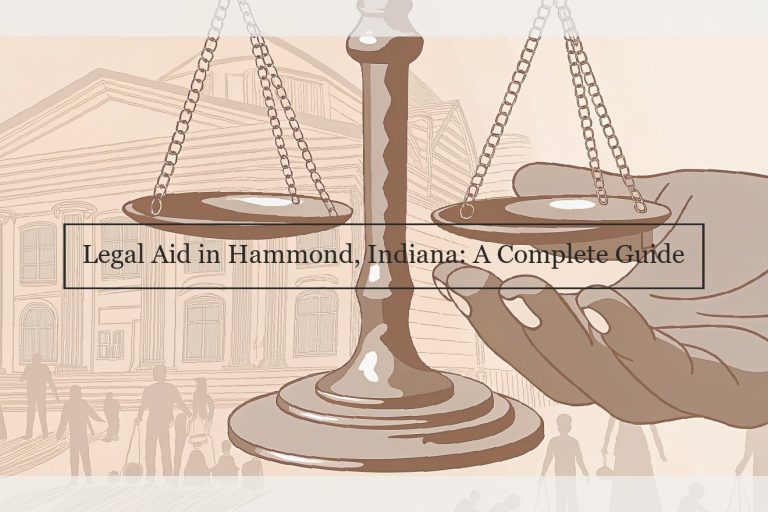Oklahoma Power of Attorney Changes Overview
The enactment of the new Uniform Power of Attorney Act is important, but the Oklahoma legislature’s change to a new law pertaining to Powers of Attorney is actually a bigger deal to most people. That’s because almost everyone has at least one Durable Power of Attorney. It may be in the file cabinet; it may be in the bank’s safe; or, more likely, it’s in the file cabinet at the bank. But the Durable Power of Attorney, granting your spouse, son, or daughter the ability to act on your behalf with respect to your bank accounts is probably somewhere. Often, in an emergency where a major financial decision must be made, we’ll call the bank to get access to the account. And, also, often we’ll be told that your Durable Power of Attorney is not sufficient for our purpose at the bank because the date on the document is earlier than June 30, 2010 , when the old law was repealed and the Uniform Power of Attorney Act became the law. Our clients who have experienced this now carry with them two copies of the new document when away from home.
We therefore applaud the change in Oklahoma law dealing with Powers of Attorney for property to require a bank to accept a properly completed and valid Durable Power of Attorney if presented to the bank after June 30, 2010, even if its date precedes June 30, 2010. Financial institutions may still ask for the new Oklahoma statutory language but we did not find any institution that refused to honor a power of attorney despite the lack of the new language, so far.
For estate attorneys, the new law Had A Much larger impact than it seems and consequently much more work will now be done by banks, financial institutions and estate planners to help people transition over to the new Oklahoma model.
Essential Features of the Revised Law
The new law outlines a power of attorney as either (i) a "statutory power of attorney" for the management and distribution of assets by a principal for his or her own benefit; or (ii) a "statutory gift rider power of attorney" that may be used to make gifts, transfer assets and make estate plan transfers for the benefit of the principal’s heirs. In each case, the principal makes the power of attorney for the agent’s (also called the attorney-in-fact) own benefit. Stated differently, the new law limits the powers of an agent to those explicitly granted by the principal via a statutory template. Further, the new law is designed to prevent an abuse of powers by requiring an agent to act under the power of attorney and in the best interests of the principal. In addition, the new law allows a principal to include a "gift rider" with the statutory power of attorney to make gifts as provided by the principal, under the gift rider, to third parties outside the control of the principal.
Effects on Legal and Financial Matters
The new law specifically provides guidelines for the legal and financial management of one’s affairs under a power of attorney. Such as, the new law provides remedies for specified violations of duties under the law. Those violations include: The power of attorney is no longer required to be recorded (except in real estate transactions) but if it is recorded, it constitutes constructive notice of the agent’s authority. Abuse or breach of fiduciary duty must be dealt with through the courts, and remedies include an award of damages, attorney’s fees, and other equitable relief. An original or copy of a power of attorney must be filed with the court if any action is commenced based upon the power. In the event there is a recordable power of attorney, the court filing requirement is waived after the power is recorded, and throughout its duration. The new statute defines as "Banking institution" a bank, savings and loan association, savings bank, credit union, trust company, economic development finance corporation, or other entity authorized to accept deposits or make loans in this state. Signing authorization for banks is also provided in the statute on the specific forms promulgated by the Oklahoma Banking Commission. An agent is entitled to all authority necessary to realize the value of personal retirement accounts such as 401K plans, IRAs, SEPs, SIMPLEs, or similar retirement plans, without proof of the incapacitation of the principal or of the existence of the power of attorney, if the power expressly grants authority over retirement accounts.
How to Create an Effective Power of Attorney
Under the new Oklahoma statutory scheme for a General Power of Attorney, the statutory language must be used, but is not the only option. While the statutory form is the default, it is possible to use another form or use the statutory words in a notarized document that otherwise appears to be a general power of attorney. For example, the following may be sufficient to be a valid general power of attorney: I give, grant, and confer unto my agent full power and authority to do and perform every act and thing necessary and proper to be done on my behalf relating to the subject of this power, including each and every one of the powers and authorities listed in the Oklahoma Uniform Power of Attorney Act. (Oklahoma Title 58, Chapter Three, Section 1071(A)) I reserve the right to modify or revoke this power and this power will be effective until I provide my agent with notice of such modification or revocation. This power of attorney is governed by the laws of the state of _____________________. If I am incompetent, my agent shall act on my behalf in accordance with and subject to the standards and limitations set forth in Oklahoma Title 58, Chapter Nine, Section 1074. If I become incompetent, my agent will have full power and authority, subject to fiduciary standards, without regard to my legal competency as determined by a court , to exercise the powers and authorities enumerated in this power of attorney. My agent shall have the full power, authority, and obligation to do all things and perform all acts necessary so that my agent shall be fully authorized to utilize the powers and authorities of this power of attorney as my attorney-in-fact. Each of my agents may exercise the powers and authorities granted hereunder jointly and separately without the need for the other agent’s consent or input. I intend for the use of both singular and plural neuter form to include both masculine and feminine when appropriate. In order to create a valid general power of attorney under the Oklahoma Uniform Power of Attorney Act, a document must be signed by the principal in front of a notary public. A power of attorney cannot be created or modified in the same manner as a will, however, a will can be created or modified in accordance with Oklahoma law for a power of attorney. An old general power of attorney can be changed into a statutory power of attorney in accordance with the provisions of the old law (58 O.S. 1071-1086). A statutory power of attorney terminates upon the revocation of the power of attorney witnessed by two competent witnesses, or upon the filing for guardianship of the principal.
Common Questions and Concerns
Q: I have heard that the new power of attorney law in Oklahoma allows my power of attorney to sell my house after I am dead. Is that true?
A: No, it is not true. Your power of attorney ends when you die. Although the new statute contains provisions intended to protect against elder abuse, there are other provisions which could be used to exploit the senior, such as allowing your power of attorney to sell your residence after you die. There is a specific provision in the new statute addressing this issue. That provision prohibits your power of attorney from signing a deed to your home while you are still living. Even if the deed is otherwise legally valid, such as a "Ladybird Deed," it is not valid if it was signed by your power of attorney. Before your death, you should change the deed to your residence to give effect to your intentions while you are alive. After you die, a probate will likely be necessary to fix the problem which prevents your power of attorney from signing a deed to your home.
Q: Does the new statutory form of power of attorney allow my power of attorney to gift my money and property to themselves?
A: No, not without specific authorization in the statutory form of power of attorney. You must separately initial each specific gift provision in order for them to apply. If you wish to give such authority to your agent, you should consider the Simultaneous Death provision in the new statute so that your agent does not take things from your estate at your death. Otherwise, your intent to gift property during your lifetime could be overturned by your death.
Q: I have an old 3-7-4 form power of attorney. Is it still valid for legal purposes?
A: Not necessarily. The old 3-7-4 power of attorney gives your agent authority to act for you in any matter that you could act for yourself unless the power of attorney is limited. The old 3-7-4 form allows powers which may no longer be permitted under the new law. For instance, your agent could transfer the power of attorney to a third person. Under the new law, the power of attorney ends upon the incapacity of your agent. Therefore, your powers may have been terminated. You may want to consider making a new statutory power of attorney and rescinding the old 3-7-4 power of attorney. If your agent were to die while acting under the old 3-7-4 power of attorney, the new statutory provision stating that the death of an acting agent terminates the power will also terminate the old 3-7-4 power of attorney.
Engaging a Lawyer
Understanding the ins and outs of a power of attorney document is often a process based on particulars. A particular state, a particular need, a particular purpose, and a particular person all interact in complex ways and must be dealt with accordingly. The applicability of the new Oklahoma power of attorney law is an example of this. In fact, if power of attorney documents are not worded correctly, the power of attorney can actually fail in its essential purpose . This is just one more reason why it is so important to consult with a qualified professional who can help navigate the intricacies of power of attorney issues.
These professionals include lawyers who have experience with overseeing clients with power of attorney documents and all of the implications they bring. They can discuss with you the advantages and disadvantages of particular types of power of attorney documents, how these documents will affect your estate plan, how other parts of your estate plan interact with power of attorney documents, and what steps you can take to protect yourself.




+ There are no comments
Add yours